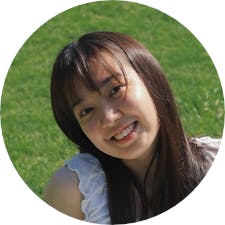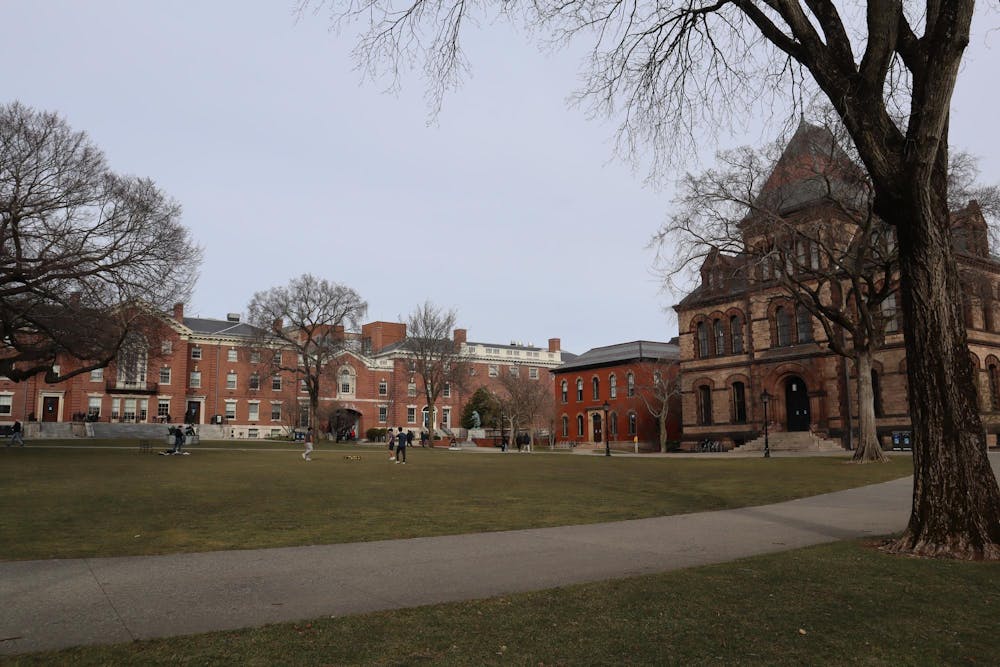Over 100 students attended a listening session hosted by the Undergraduate Council of Students last Wednesday evening in the Petteruti Lounge, according to UCS President Mina Sarmas ’24.
Around 11 students spoke at the session. The event encouraged students to share their “feelings and experiences regarding campus climate, the Israel-Palestine conflict, student activism … (and) how UCS can be supportive through this time,” according to a UCS email to students.
An anonymous form, shared in the email as an alternative for students to voice their perspectives, also collected almost 100 responses, Sarmas said. UCS reviewed responses and summarized main takeaways for the council after the session.
The session came as the council considers how it “can be supportive of students,” Sarmas said. She added that while some students had already expressed their thoughts to UCS members, the council “wanted to have the chance to hear from different people.”
According to Sarmas, statements dealt with increased violence in Israel and Gaza, ranging from thoughts about campus to broader trends.
Topics covered included “family histories of fleeing antisemitism,” “personal experiences in being detained by Israeli authorities,” free speech on campus and suggestions for UCS action, wrote UCS Chair of Academic Affairs Daniel Newgarden ’25 in an email to The Herald.
Students “have very strong emotions and feelings and ties to the issue,” Sarmas said, adding that even though some spoke on “similar themes … their message to UCS directly is different.”
Speakers expressed a wide array of sentiments at the meeting regarding Israel and Palestine. Some urged UCS to take a more active role in the campus discourse; others called for it to stay away from political matters.
“My primary impression (was) that I was there to give a specific testimony to … (UCS, which is) trying to decide what they want to do in response to (an) extremely time-sensitive and charged issue on campus,” said Eli Grossman ’24. Grossman, who spoke at the event, discussed his participation in a separate interview.
Grossman said he wanted to remind UCS of its responsibility in representing and advocating for student voices. He referred to a 2019 referendum calling for divestment and student members’ 2020 votes for divestment on the Advisory Committee on Corporate Responsibility in Investment Policies.
In the 2019 UCS annual spring elections — in which roughly 44% of the undergraduate student body participated — roughly 69% of students voted in favor of a referendum that called for the University to “divest all stocks, funds, endowment and other monetary instruments from companies complicit in human rights abuses in Palestine and establish a means of implementing financial transparency and student oversight of the University’s investments,” The Herald previously reported.
The day after results were announced, President Christina Paxson P’19 P’MD’20 responded in a letter rejecting the referendum, writing that “Brown’s endowment is not a political instrument to be used to express views on complex social and political issues.” UCS referendums do not directly affect University policy.
“Regardless of what any individual members of UCS felt about this issue, (the council) had a responsibility and a duty to affirm (its) legitimacy and advocate for the outcome of the 2019 UCS referendum,” Grossman told The Herald.
“I agree it’s in our bylaws to advocate on behalf of referenda that pass,” Sarmas wrote in a message to The Herald. “UCS is working through how to incorporate what we heard in the listening session into conversations with administration and further initiatives.”
She described the use of referendums as “a formal and strong demonstration of students’ support” for issues.
Grossman also advocated for free expression on campus. “I believe that all students have a right to free speech … to voice that speech free of intimidation,” he said. “That should be protected even (with views) I disagree with.”
He described the event as “respectful” and “well-ordered.”
But Lior Berrin ’27, a Brown Students for Israel member who spoke at the event, said the room had a “hostile environment” and that “it wasn’t a room that was conducive (to) discussion.”
Two BSI members — including Berrin — spoke toward the end of the event, at which most students advocated for Palestine and a ceasefire.
“After each speech … (the audience) would give large applause, cheer. They said ‘shame’ the same way that they would say that at a rally,” Berrin said. “It really just did not feel like a discussion environment.” BSI members who originally planned to speak no longer felt comfortable speaking in front of “the student body that was in attendance,” he added.
During the event, Berrin spoke about how if students “believe the Palestinian view is being repressed,” they should recognize “it is not safe to be pro-Israel on campus right now.”
“We should, as a community, try to cultivate an environment where we can have discourse freely,” he said.
When Berrin spoke, he heard someone in the room laughing, he told The Herald. “It felt like they didn’t respect me, which was the reason why I was speaking” in the first place.
He added that only “two or three people” clapped after his speech while “the entire room was cheering and clapping” after other speakers. “It felt like I wasn’t talking to people who accepted me for who I am,” he said.
“The people who spoke and the people who were in attendance were … not representative of the views on campus,” Berrin said.
UCS provided a variety of ways for students to communicate with the council, so “we can hear from anyone who wanted to be heard,” Sarmas wrote in a message to The Herald. “We didn’t expect so many students and may have adjusted (the) format and location if we knew.”
Students could also speak to UCS Chair of Diversity, Equity and Inclusion Skye Alex Jackson ’25 privately at the session, Sarmas added.
“UCS did our best to accommodate students’ feelings getting up on the stand, so I — unplanned — took the testimonies of some students privately during and after the event to ensure that those who came could express how they were feeling,” Jackson wrote in an email to The Herald.
During the event, some students waited outside as the room reached its capacity, with some switching in mid-event so they could hear speakers, Sarmas said. “People that wanted to speak were prioritized to bring in.”
The Council had set ground rules — such as respecting other attendees, not interrupting during speeches and refraining from photographing and recording — before speakers gave their statements.
UCS didn’t respond to any student statements during the event, Sarmas told The Herald.
“The feedback we’ve gotten (is) pretty heavy, so I think we need some time to sit with these things,” Sarmas said.
According to Sarmas, the event helped the council “identify where students aren’t feeling supported right now,” in terms of “feelings of discrimination on campus,” “acknowledgment of their grief and pain” and the council’s work to implement the 2019 referendum.
Jackson wrote she is “actively working with (the) administration to hold the space for all student sentiments.”
“We really are embracing our role as the liaison” between students and administrators, Sarmas said. “And making sure that the feedback … from students (is) communicated to the proper people, and then in the reverse, making sure that information and resources can also get communicated back to students.”

Kathy Wang was the senior editor of community of The Brown Daily Herald's 134th Editorial Board. She previously covered student government and international student life as a University News editor. When she's not at The Herald, you can find her watching cooking videos or writing creative nonfiction.





